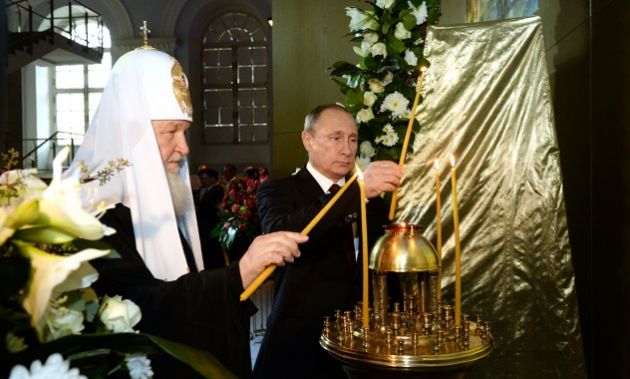Putin's visit to Greece's Mt. Athos Orthodox community described as 'fighting for the faith'

Russian President Vladimir Putin made a visit to the monastic community of Mount Athos, one of Orthodox Christianity's holiest sites, as the last leg of his two-day visit to Greece.
The Russian leader took part in ceremonies marking there marking 1,000 years of Russian monasticism, the Tass news agency reported.
"As Putin, completing his visit to Greece, reached Athos this Saturday, the monks welcomed him as a superstar, and even more: as the defender of their faith and a loyal ally of Greece," Spiegel Online wrote according to Sputnik International.
Putin said, "Today, as we resurrect the values of patriotism, historical memory and traditional culture, we hope for ... a strengthening of relations" with Mount Athos, Russia Today reported.
The Russian leader came together with Patriarch Kirill of Moscow to mark 1,000 years of Russian presence on the holy mountain and was not wearing his necktie at the ceremony, like the Greek prime minister, Alexis Tsipras.
"The role of Mount Athos is particularly important to Russian Orthodoxy," Putin noted , referring to over 11,000 Russian faithful who visit the area annually, Agence France-Presse reported.
Putin was joined on his visit by Greek President Prokopis Pavlopoulos and Foreign Minister Nikos Kotzias.
The Greek foreign minister is a former Communist who clashed with European Union peers last year over the Ukraine crisis, arguing that the bloc should avoid "spasmodic" moves against Moscow, a reference to sanctions imposed after Russia annexed Crimea in 2014
Putin joined the celebrations at the St. Panteleimon monastery to mark 1,000 years of Russian monks at Mount Athos and was accompanied by Patriarch Kirill, head of the Russian Orthodox Church.
Mount Athos is an enclave of 20 monasteries where women have been banned since it began.
In both Greece and Russia Orthodox Christianity is the dominant religion.
Putin first arrived in Karyes, the administrative center of the Holy Mountain, where he visited the Church of Protaton making the journey to the peninsula by boat as there is no road access.
Putin was an officer in Russia's secret service, the KGB, in Communist times, at a time when the Soviet State scorned religion.
He has shown himself to be a supporter of the Orthodox Church, which he came into contact with as a child and is known to have a strong relationship with Patriarch Kirill, already prominent in the church in Soviet times.